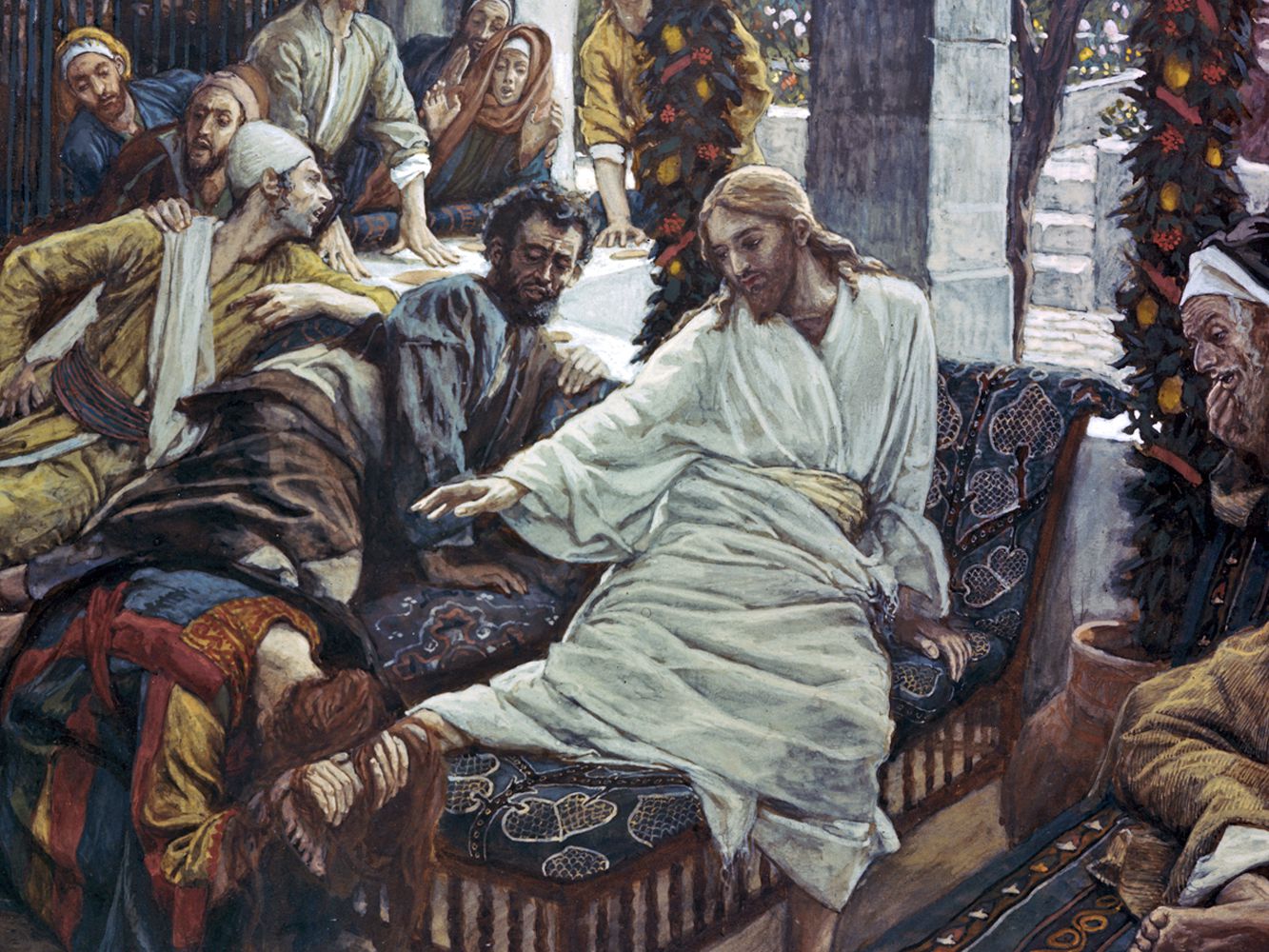
Why do you anoint someone with oil?
The term "anointed" means, among other things, to be made sacred (consecrated); to set apart and dedicate oneself to the service of God; to be endowed with enabling gifts and grace; or to be divinely designated, inaugurated, or chosen. We know that God is concerned about this subject since the words anoint, anointed, and anointing are found in more than 150 Spirit-inspired Bible verses, including 22 New Testament passages. In fact, the English word anoint originates from the ancient Latin inunctus, which means "to spread with oil.".
Anointing with oil: According to the Bible Dictionary, there are only two types of anointing: with oil or by the Holy Ghost. As a result, anointing and oil are more closely related than most people realize, which explains why Bible translators sometimes use anoint and oil interchangeably as synonymous verbs (e.g., Isa. 21:5).
Jesus Christ is more accurately referred to as "Jesus the Anointed" (or "Jesus, the Anointed One", or "Jesus, His Anointed"); both the ancient Hebrew form of Messiah and the ancient Greek form of Christ literally mean "anointed". It is for this reason that our Savior first publicly identified himself as the divine Messiah [Luke 4:18] by quoting Isaiah 61:1: "The Spirit of the Lord is upon me because HE has anointed me........". It is also why Peter, John, and the followers with them, inspired by the Holy Spirit, publicly refer to Jesus (Yeshua) as the "Anointed One" [Acts 4:26, NIV] and the NKJ, NIV
The purpose of fragrant oil - It is clear that God loves fragrances and perfumes since these words (or versions of them) appear 41 times and 35 times, respectively. There are several references to spices throughout the Bible, including anointing oils, perfume, food, and incense: 16 verses deal with frankincense, 17 with myrrh, five with spikenard, and others involving cinnamon, cassia, calamus, camphor, stacte, aloes, onycha, cedar, honey, hyssop, henna, mandrakes, pomegranates, as we begin to understand the spiritual significance of these exotic biblical fragrances, our faith is enriched and we become closer to God.
The first scriptural reference -The great Hebrew patriarch Jacob (divinely renamed "Israel") makes a sacred vow to God by pouring oil over a stone pillar [Gen. 28:16-22; 31:13; 35:14]. By pouring the anointing oil over the pillar, Jacob sanctified it by making it an altar unto God. Jacob named the pillar Bethel (or Beit-El, meaning "House of God.”).
In Exodus chapter 30:30-34, the LORD instructs Moses to prepare a very special and "holy anointing oil" containing "the finest of spices", including "flowing (liquid) myrrh", "sweet-smelling cinnamon", "fragrant cane", "cassia", and "olive oil". This highly aromatic oil served to consecrate (dedicate) the articles used in Temple worship, including the Ark of the Testimony, the Holy Tabernacle, and all its furnishings, thus making them "Holy" (Kadosh) to the Lord. Nevertheless, God gives a prohibition against reproducing the exact formula or using it on ordinary humans. This is a command that Mount of Olives takes seriously. *(We do not attempt to recreate the formula in any way.)
In Biblical times, light was generally provided by oil lamps (or menorahs, a Hebrew word translated as "lampstands," "lamps," or, less accurately, "candlesticks"). These simple "lamps" were often made of clay, brass, silver, or gold and burned oil slowly, usually olive oil. Exodus 27:20 (“...order the people of Israel to bring you pure oil of pounded olives to light a lamp continuously”); Exodus 35:14 (“...the menorah for the light, ... and the oil for the light, spices for the anointing oil, and fragrant incense for the lamp...”); and Exodus 35:28 (“...oil for the light, and for the anointing oil...”). These verses also enhance our understanding of the parable of the wise and foolish virgins in Matthew 25:1-12].
Priests -In Exodus, the LORD identifies anointing oil as an acceptable offering unto Him [Ex. 25:6]. Furthermore, He directs that Aaron and his sons be anointed, consecrated, and sanctified as holy priests to minister unto Him [Ex. 28:41 and that Aaron be anointed as Israel’s High Priest through the pouring of anointing oil on his head and garments [Ex. 29:7,21,29]. (Psalm 133:1-2: compare harmonious brotherhood to “fragrant oil on the head that runs down over the beard of Aaron…”).
The Lord identifies anointing oil as an acceptable offering to Him in Exodus [Ex. 25:6]. He also directs that Aaron be anointed, consecrated, and sanctified as holy priests to minister to Him [Ex. 28:41, and that Aaron would be anointed as Israel's High Priest through the application of anointing oil on his head and garments [Ex. 29:7,21,29]. (Psalm 133:1-2: compare harmonious brotherhood with "fragrant oil on the head that runs down Aaron's beard...").
In Scripture's first anointing of a king, Samuel pours oil on the head of King Saul [1 Samuel 10:1].
The anointing of David, the "man after God's own heart," took place not just once, but three times (1 Sa). 16:12-13; 2Sa. 2:4; 2Sa. 5:3]. Psalm 23:5 states, "You anoint my head with oil." This statement is confirmed in Psalm 89:20-21, where God declares, "I have found David my servant and have anointed him with My holy oil." "My hand will always be with him." In addition, David anoints himself while trying to shake off the grief following the death of his son and before entering the Temple to worship God (2 Samuel 12:20].

Queen Esther and the oil of myrrh - Before Esther's coronation any Queen had to undergo a year of preparation [Esth. 2:3, 6-13]. Her treatment consisted of six months of oil of myrrh and six months of perfumes and other aloes. In ancient times, the average woman's perfume was her anointing oil. A translation states "...with olive oil and myrrh.”.

Spikenard oil & Mary of Bethany - One of Scripture's most poignant and bittersweet scenes [Matthew It is recorded in the Gospel of John, in verses 26:6-13; Mark 14:3-9; John 12:3-5, that a woman with an alabaster jar containing a very expensive perfume (pure spikenard oil worth an average laborer's annual salary) approaches Jesus, breaks the bottle, and begins pouring the precious oil over His head and feet. Mary's unselfish, thoughtful, heartfelt, sacrificial expression of devotion and profound love moved our Lord deeply. As the house fills with its pungent fragrance, He comments to those nearby: "She has done a beautiful thing for me...She poured this perfume over me to prepare my body for burial...I declare that throughout the world, what she has done will be remembered." Our Lord was deeply moved by Mary's unselfish, thoughtful, heartfelt, sacrificial expression of devotion to Him. Some Bible commentators consider Mary's faithful act to be the ultimate example of what God desires in his children.
Frankincense & Myrrh - The Magi from the east presented gifts of gold, frankincense, and myrrh to the child Messiah (Matthew 2:11]. According to the gospels, Jesus was offered myrrh mixed with wine before His death, which He rejected, and that His body was treated with "a mixture of myrrh and aloes" after His passing. Frankincense has come to be associated with Messiah's role as our intercessor (the bowl of incense in Revelation 5:8 represents the prayers of the saints), and myrrh with His suffering and death. Song of Songs describes the bridegroom (Jesus) as coming in a pillar of smoke with a smell of myrrh and frankincense. It has been suggested that gold, frankincense, and myrrh represent the three roles Jesus played: King, Priest, and Prophet.
In his letters to the churches, the apostle Paul writes: "...thanks be to God, who in the Messiah leads us in a triumphant procession and spreads through us the fragrance of what it means to know Him!" For we are the aroma of the Messiah, both among the saved and the lost. To the latter, we are the scent of death that only leads to greater death, but to the former, we are the sweet aroma of life leading to greater life." [2Co 2:14-16]
Jesus’S COMMAND: According to Revelation 3:18 (NAS), It is Jesus who tells the believing community in Laodicea: "Buy from Me gold, white garments...and eye salve to anoint your eyes, so that you may see." Speaking of "white garments", consider King Solomon's advice: "Always be clothed in white, always anoint your head with oil.".” [Ecc. 9:8, NIV]
ANOINTED BELIEVERS: Believers are “in Jesus and He is “in us”; thus we, too, have been and are divinely anointed, as affirmed by both 2 Corinthians 1:21-22 . It is God who sets us...in firm union with the Messiah; "He has anointed us, sealed us with His Spirit, and given us His Spirit and 1 John 2:20, 27 ("...you have received the Messiah's anointing...the Messiah's anointing you received from the Father remains in you...His Messianic anointing also teaches you about everything, so remain united with Him.") Therefore, regardless of whether you use anointing oil, you're one of God's anointed.
Others can and should be anointed as well: Some believe anointing oil should be limited to kings and priests, but according to Scripture, all believers in Jesus as their Savior and Lord are "priests" [1Pe. 2:5,9]; as kings (as they possess the King of Kings "in them" [Gal. 2:20]), they should view their being anointed with oil as a physical manifestation of the Holy Spirit filling them continuously [1Jn. 2:20; 2Co. 1:21-22]. According to most Bible scholars, anointing oil is used in God's Word to symbolize the Holy Spirit. Additionally, "ordinary" ancient Israelites anointed themselves and each other with oil [Ruth 3:3; 2Ch. 28:15; Dan. 10:3; Amos 6:6], the B’rit Hadashah (Hebrew for New Covenant) actually instructs "ordinary believers" to do this [Matthew 6:17; James 5:14].
Related Article: GOD WANTS TO ANOINT YOU!


Leave a comment
This site is protected by hCaptcha and the hCaptcha Privacy Policy and Terms of Service apply.